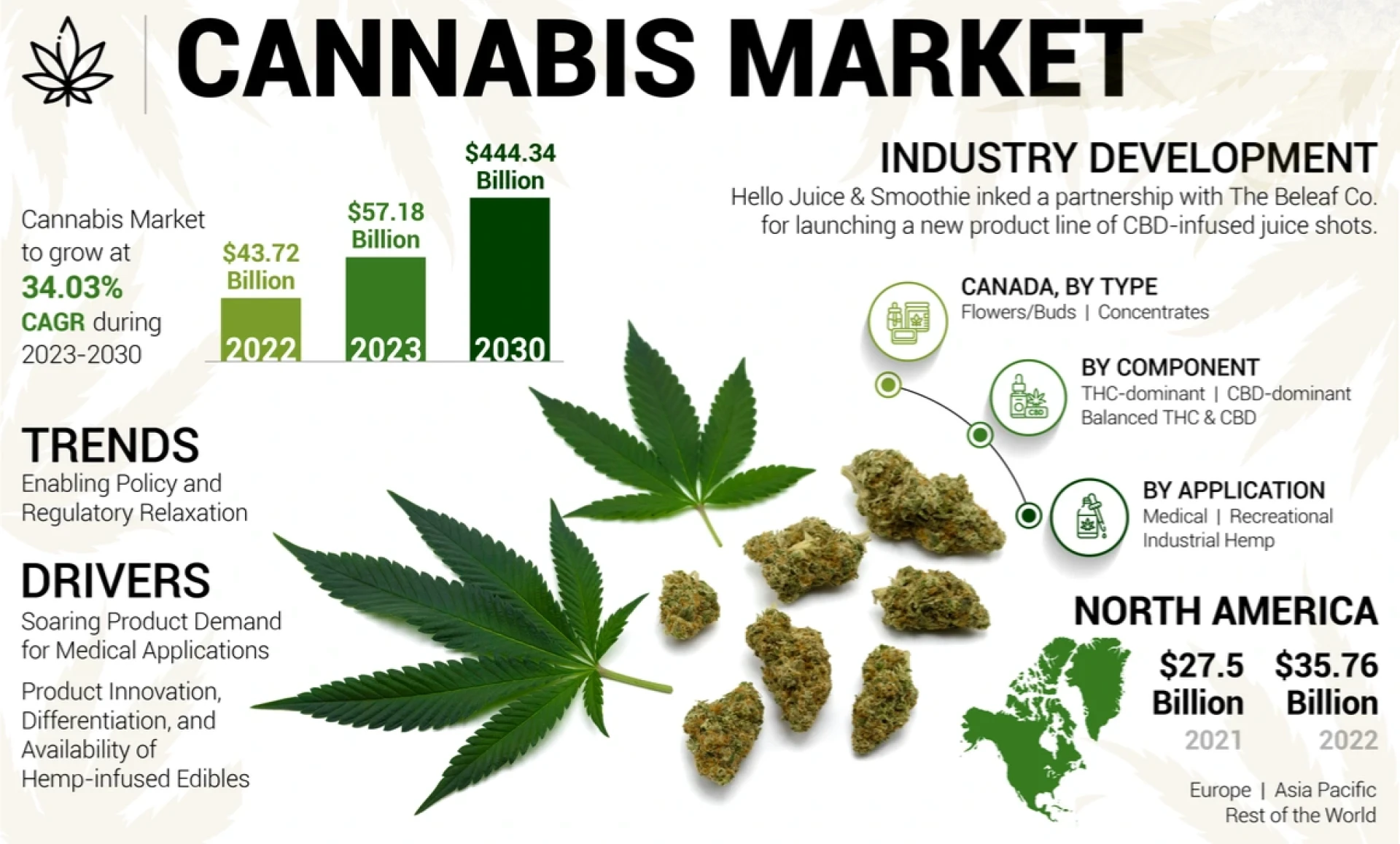
Introduction
Over the past decade, recreational cannabis has transformed from a controversial topic into one of the fastest-growing industries in America. What began as a bold experiment in Colorado and Washington has now become a nationwide conversation, with recreational dispensaries emerging as a central part of local economies, community culture, and wellness practices.
As we step into 2025, the story of recreational dispensaries is no longer just about access to cannabis—it’s about jobs, tax revenue, evolving laws, and changing public attitudes. For communities like Joplin, Missouri, recreational dispensaries are not just retail shops but also key players in shaping how cannabis fits into daily life.
A Brief History of Recreational Dispensaries in the U.S.
The journey of recreational dispensaries is still relatively new. The first legal sales began in 2014, when Colorado and Washington opened their markets. From there, legalization spread rapidly across the United States. Each state designed its own system of licensing, taxation, and regulation, leading to a patchwork of approaches to cannabis sales.
Unlike medical dispensaries, which require a doctor’s recommendation, recreational dispensaries serve any adult 21 or older with valid identification. They offer a wide range of products—flower, pre-rolls, edibles, vapes, concentrates, and even beverages—catering to a broad spectrum of consumers.
The Growth of Recreational Dispensaries in 2025
Explosive Market Expansion
Industry analysts project that the U.S. legal cannabis market will surpass $40 billion in annual sales by 2025, driven largely by recreational demand. Dispensaries are at the heart of this expansion, and their influence extends far beyond product sales.
- Job Creation: From cultivation to retail, the cannabis industry supports hundreds of thousands of jobs nationwide.
- Tax Revenue: States collect billions in cannabis-related taxes, reinvesting funds into public health programs, infrastructure projects, and education.
- Local Benefits: In smaller cities such as Joplin, Missouri, recreational dispensaries are stimulating local economies by attracting visitors, supporting local vendors, and creating community-centered opportunities.
Changing Cannabis Laws in 2025
State-Level Progress
Cannabis laws remain one of the most dynamic aspects of this industry. In 2025, more states are expected to legalize recreational use, following the trend of public support. Mature markets like California and Colorado are refining their rules to tackle oversupply and environmental sustainability, while newer markets like Missouri are fine-tuning their licensing systems to balance access with responsible oversight.
Federal Outlook
At the federal level, cannabis remains classified as illegal, but discussions around reform are gaining momentum. Banking reform, taxation rules, and potential interstate commerce are being debated, and any shift at this level could fundamentally reshape how recreational dispensaries operate.
👉 To see where your state stands, visit updated state cannabis laws provided by the National Conference of State Legislatures.
Consumer Trends Shaping Recreational Dispensaries
A Desire for Product Variety
Consumers are moving beyond traditional flowers. Dispensaries are expanding their menus with pre-rolls, vapes, concentrates, infused edibles, and even cannabis beverages.
Health & Wellness Demand
Modern cannabis consumers often seek low-dose THC products, CBD-infused blends, and options designed for stress relief, better sleep, or improved focus. Recreational dispensaries are responding by offering products that align more closely with holistic wellness.
Local Appeal in Missouri
In regions like Joplin, Missouri, many shoppers prefer cannabis grown or crafted locally. This supports small-scale cultivators and creates a sense of community pride in the products available at a recreational dispensary Joplin residents can trust.
Technology & Innovation in Dispensaries
Recreational dispensaries are not just storefronts—they are evolving into high-tech retail experiences.
- Online Menus & Ordering: Many dispensaries now feature digital menus where customers can browse, compare, and order ahead.
- Curbside Pickup & Delivery: Where allowed, these services offer convenience similar to other modern retail industries.
- AI Recommendations: Some dispensaries use smart technology to guide customers toward products that fit their needs, creating a personalized experience.
The Local Economic Impact of Recreational Dispensaries
Dispensaries are proving especially impactful in mid-sized cities and smaller communities.
- Tourism Boost: Visitors from surrounding regions often travel to legalized areas to explore dispensaries.
- Community Growth: Tax revenue supports schools, infrastructure, and city projects.
- Business Collaboration: Dispensaries often partner with local artisans, food producers, and wellness providers to broaden their community footprint.
This demonstrates how recreational dispensaries extend far beyond cannabis—they act as catalysts for broader economic and cultural growth.
Challenges Ahead in 2025
Despite rapid expansion, recreational dispensaries still face challenges:
- Regulatory Complexity: Each state has different requirements for licensing and compliance, making expansion difficult.
- Banking Barriers: Federal restrictions prevent many dispensaries from using traditional banking systems, forcing them into cash-heavy operations.
- Market Saturation: Some states have licensed too many stores, causing fierce competition and falling prices.
- Lingering Stigma: While acceptance has grown, social stigma still exists in certain regions.
The Future of Recreational Dispensaries

Looking beyond 2025, several trends are likely to define the next stage of recreational dispensaries:
- Expansion to New States: More states are expected to legalize adult-use cannabis in the coming years.
- Product Innovation: Cannabis beverages, dissolvable strips, and wellness-focused products will continue to rise.
- Cannabis Tourism: States with recreational sales will likely see a boom in cannabis tourism, bringing visitors from non-legal states.
- Federal Reform: If federal legalization or banking reform occurs, dispensaries could gain nationwide business opportunities.
Conclusion
Recreational dispensaries have transformed the U.S. cannabis landscape in less than a decade. By 2025, they are more than just retail outlets—they are drivers of economic growth, local innovation, and cultural acceptance.
For communities like Joplin, Missouri, recreational dispensaries are reshaping local economies while providing safe and regulated access to cannabis products. With evolving laws, shifting consumer preferences, and ongoing innovation, the role of dispensaries in America is only set to grow.
As legalization spreads and public perception continues to shift, the idea of the best dispensary in Missouri may not come down to a single location but rather to how dispensaries statewide adapt to community needs, prioritize safety, and reflect the values of the customers they serve.



